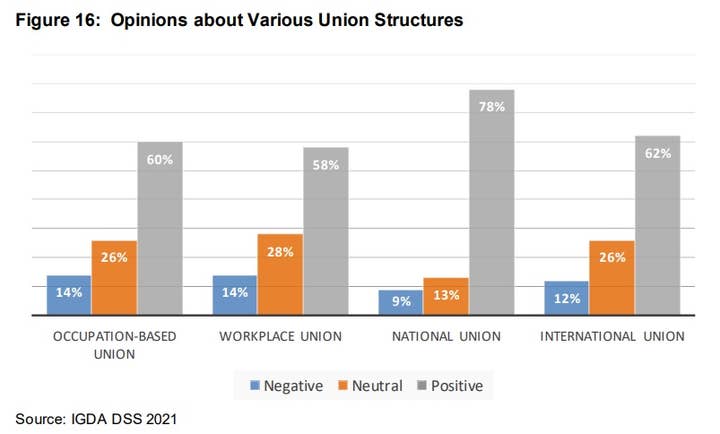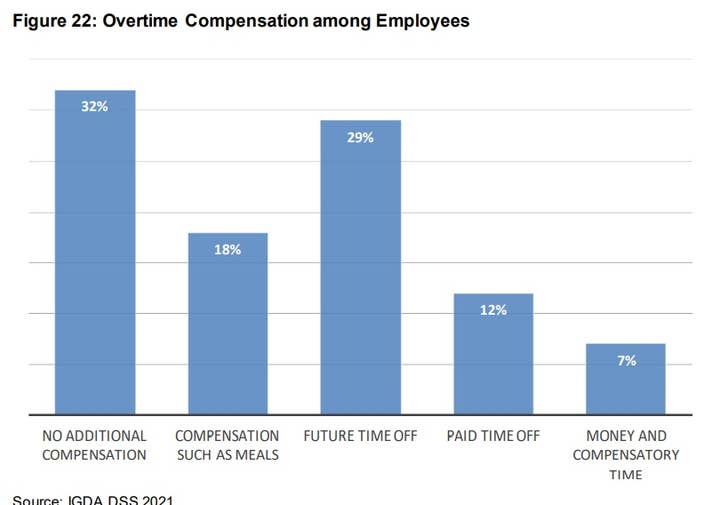IGDA developer survey sees jump in union participation
12% of respondents were unionized in 2021 survey, up from 6% in 2019; crunch trends also highlighted
Unionized game developers are a small but growing part of the industry, according to the International Game Developer Association's Developer Satisfaction Survey.
The latest edition of the biennial survey reported that 12% of respondents in 2021 were unionized, compared to 6% in 2019.
The 2021 survey was conducted in the first quarter of the year and incorporated responses from 803 people. While it was open to people around the world and conducted in multiple languages, more than 90% of responses were in English and the US and Canada were the only two countries accounting for double-digit percentages of respondents, with 39% and 12%, respectively.
Pro-union sentiment also seems to have grown alongside union membership in recent years. In the IGDA's 2014 survey, 56% of developers said they were in favor of a national union of game developers in their own country. This year, 78% of respondents were positive on that idea, with just 9% against it.
Other union structures were less popular, but even they had strong support. A workplace union was the least preferred structure, with 58% of respondents positive on the idea.
No union structure had more than 14% of respondents responding negatively to the idea.

In a note accompanying the survey results, IGDA executive director Renee Gittins didn't touch on unionization specifically, but did talk about possibly related trends in crunch.
"While the game industry has overall done well during the COVID-19 pandemic, we saw nearly double the number of developers reporting they had crunched recently," Gittins said. "This sudden loss of progress compared to the past trend of crunch decreasing year over year is likely caused by inefficiencies and delays caused by work from home and mental health challenges caused by the pandemic."
Crunch was similarly common among developers regardless of the type of employment report. 35% of developers with full-time or part-time employment reported crunching, compared to 33% of freelancers and 28% of self-employed developers.
However, there were some distinct differences in how each type of developer crunched. For example, 42% of employees and 39% of self-employed developers said crunch was expected as a normal part of their job, but 74% of freelancers saw it as expected.
There were also some notable disparities in developers crunching for 80-hour work weeks. No freelancers reported that kind of extreme crunch and just 2% of studio employees did, but 19% of self-employed developers reported 80-hour (or more) hours a week during crunch.
The IGDA also looked at how crunch overtime was compensated, and found 32% of employees reported receiving no additional compensation, with another 18% getting "compensation such as meals." Only 12% of employees reported receiving paid time off, and 7% said they got money and compensatory time.









